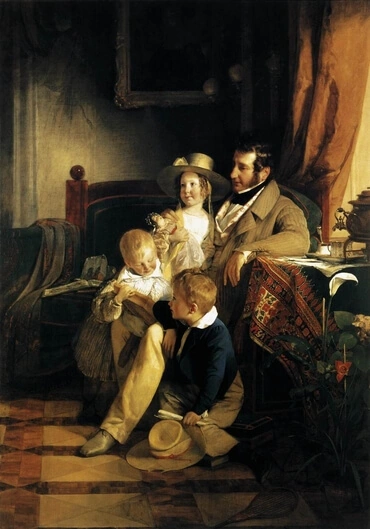1
Era entonces toda la tierra una lengua y unas mismas palabras.
2
Y aconteció que, cuando partieron de oriente, hallaron una vega en la tierra de Sinar, y se asentaron allí.
3
Y dijeron los unos a los otros: Dad acá, hagamos ladrillo y cozámoslo con fuego. Y les fue el ladrillo en lugar de piedra, y el betún en lugar de mezcla.
4
Y dijeron: Dad acá, edifiquémonos ciudad, y torre, que tenga la cabeza en el cielo; y hagámonos nombrados, por ventura nos esparciremos sobre la faz de toda la tierra.
5
Y descendió el SEÑOR para ver la ciudad y la torre, que edificaban los hijos del hombre.
6
Y dijo el SEÑOR: He aquí el pueblo es uno, y todos éstos tienen un lenguaje; y ahora comienzan a hacer, y ahora no dejarán de efectuar todo lo que han pensando hacer.
7
Ahora pues, descendamos, y mezclemos allí sus lenguas, que ninguno entienda la lengua de su compañero.
8
Así los esparció el SEÑOR de allí sobre la faz de toda la tierra, y dejaron de edificar la ciudad.
9
Por esto fue llamado el nombre de ella Babel, porque allí mezcló el SEÑOR el lenguaje de toda la tierra, y de allí los esparció sobre la faz de toda la tierra.
10
Estas son las generaciones de Sem: Sem, de edad de cien años, engendró a Arfaxad, dos años después del diluvio.
11
Y vivió Sem, después que engendró a Arfaxad quinientos años, y engendró hijos e hijas.
12
Y Arfaxad vivió treinta y cinco años, y engendró a Sala.
13
Y vivió Arfaxad, después que engendró a Sala, cuatrocientos tres años, y engendró hijos e hijas.
14
Y vivió Sala treinta años, y engendró a Heber.
15
Y vivió Sala, después que engendró a Heber, cuatrocientos tres años, y engendró hijos e hijas.
16
Y vivió Heber treinta y cuatro años, y engendró a Peleg.
17
Y vivió Heber, después que engendró a Peleg, cuatrocientos treinta años, y engendró hijos e hijas.
18
Y vivió Peleg, treinta años, y engendró a Reu.
19
Y vivió Peleg, después que engendró a Reu, doscientos nueve años, y engendró hijos e hijas.
20
Y Reu vivió treinta y dos años, y engendró a Serug.
21
Y vivió Reu, después que engendró a Serug, doscientos siete años, y engendró hijos e hijas.
22
Y vivió Serug treinta años, y engendró a Nacor.
23
Y vivió Serug, después que engendró a Nacor, doscientos años, y engendró hijos e hijas.
24
Y vivió Nacor veintinueve años, y engendró a Taré.
25
Y vivió Nacor, después que engendró a Taré, ciento diecinueve años, y engendró hijos e hijas.
26
Y vivió Taré setenta años, y engendró a Abram, y a Nacor, y a Harán.
27
Estas son las generaciones de Taré: Taré engendró a Abram, y a Nacor, y a Harán; y Harán engendró a Lot.
28
Y murió Harán antes que su padre Taré en la tierra de su naturaleza, en Ur de los caldeos.
29
Y tomaron Abram y Nacor para sí mujeres: el nombre de la mujer de Abram fue Sarai, y el nombre de la mujer de Nacor, Milca, hija de Harán, padre de Milca y de Isca.
30
Y Sarai fue estéril, que no tenía hijo.
31
Y tomó Taré a Abram su hijo, y a Lot hijo de Harán, hijo de su hijo, y a Sarai su nuera, mujer de Abram su hijo; y salió con ellos de Ur de los caldeos, para ir a la tierra de Canaán; y vinieron hasta Harán, y se asentaron allí.
32
Y fueron los días de Taré doscientos cinco años; y murió Taré en Harán.







